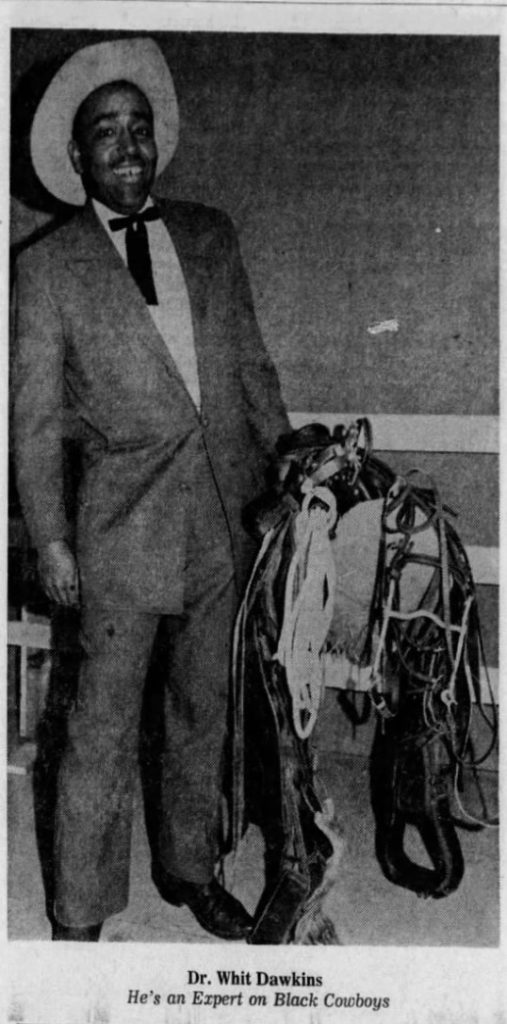In late July, 1967 Lyndon Johnson was President of the United States. The Vietnam War was ongoing. The Hippie Movement was at its peak. The fight for the civil rights for African-Americans and all Americans was sparking other rights movements. Pop culture reflected the changes taking place in this country. Light My Fire, by The Doors, and All You Need is Love, by the Beatles were topping the music charts. The Graduate was popular in the movies theatres…
And Dr. Whit Dawkins rode his sorrel horse across the state of Nebraska via highway 20 to highlight the history of the black cowboy.
Dr. Dawkins was a doctor, working for the USDA inspector of animals coming into the area meat packing houses in the Sioux City Metro.
This journey was part of celebrating the Nebraska Centennial. Towns along highway 20 came out to celebrate the historic ride. The Bassett, Nebraska Chamber of Commerce threw a steak dinner for the rider. Ainsworth and O’Neill bestowed honorary citizenship on Dawkins. The Governor and thirty mayors signed a document recognizing the work of the veterinarian.
Black cowboys were a major part, but mostly overlooked group in American history. Many former slaves were attracted to the work of the cowboy. After the reconstruction period they were not allowed to own land, so this was a viable career since they were familiar with working horses and cattle. On the drive itself, the black and white cowboys were treated as equals. But when the cowboys came into town, they often met with the burgeoning Jim Crow laws in the cattle towns.
Black women found work with the cowboys as well, though we do no have statistics, because their pay went to a household instead of to an individual woman. It was not expected that a black woman would inherit a homestead, because white men were not believed to be willing to take orders from a black woman.
Dr. Whit Dawkins was born in Terra Haute, Indiana in 1924. He passed away on April, 12, 1991 and is buried in Dakota City Cemetery.
Written By: Dan Nieman







